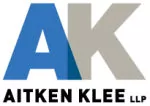On January 26, 2017, the BCCA granted Vancouver Community College's appeal and held that it's passing off claim against Vancouver Career College had been established. The BCCA also remitted Vancouver Community College's claim of breach of official marks to the trial court for fresh determination.
Vancouver Community College alleged passing off by Vancouver Career College through the use of it's official mark "VCC" in Vancouver Career College's domain name and internet advertising. Vancouver Community College also alleged the wrongful use of its official mark, "VCC", contrary to subsection 9(n)(iii) of the Trade-marks Act. The trial judge dismissed the action, holding that none of the three requirements for passing off (goodwill, confusion and damage) had been established and that Vancouver Career College's use of "VCC" prior to it becoming an official mark allowed for continued use (see our previous blog post here).
The trial judge held that proof of goodwill required proof that the product had acquired a secondary meaning or distinctiveness. On appeal, the BCCA held it was an error of law to require that "VCC" had established a secondary meaning:
[40] On my review of the authorities, including Oxford Pendaflex Canada Ltd., a secondary meaning is an aid to considering the posited attachment of the product or "get-up" to the plaintiff in cases of inherently unspecific language or "get-up", where the primary meaning by itself does not point to a party. That was not the case here. The question in this case was always, in respect to the acronym "VCC", whether it carried sufficient distinctiveness in its primary sense to be recognized as designating the appellant and the educational services it provides. ... To put it another way, the appellant simply was required to establish that a sufficient portion of the marketplace in 2009 knew that "VCC" indicates Vancouver Community College.
In finding that goodwill had been established the BCCA pointed to a significant body of evidence in the record demonstrating goodwill that was not referred to by the trial judge and held that the trial judge erred in fact by misstating the scope of evidence and in failing to relate a significant body of evidence to the issue of goodwill.
The confusion requirement dealt with internet searches, the key issue being whether the assessment should be done when search results are first displayed or after the searcher has clicked on an advertisement and arrived at the landing page. The trial judge noted that confusion is assessed at the moment of first impression and concluded that in the case of internet advertising this occurs after the searcher clicks on a search result to arrive at the landing page. The BCCA stated that while the trial judge correctly identified the first impression test, he erred in its application because the moment for assessing confusion is the first encounter when search results appear, not when the searcher arrives at the landing page:
[55] ... In my view, while the judge correctly referred to the first impression test, he erred in delaying its application to the searcher's arrival at the landing page, a moment well past the moment of first impression; the conclusion that the first impression does not occur until the searcher has reached a website by clicking on a search result, cannot be sustained on the authorities before us.
Having found that Vancouver Community College had established goodwill and confusion the BCCA noted that damage may be inferred from the loss of control over one's goodwill and held that interference with Vancouver Community College's goodwill is sufficient to establish damage.
With respect to Vancouver Community College's claim regarding the official marks provisions of the Trade-marks Act the BCCA found that there were insufficient findings of fact in the trial decision to assess the allegation or the defence of prior use and remitted the issue to the trial court for fresh determination.
A copy of the BCCA's Reasons for Judgment can be found here.
The content of this article is intended to provide a general guide to the subject matter. Specialist advice should be sought about your specific circumstances.

